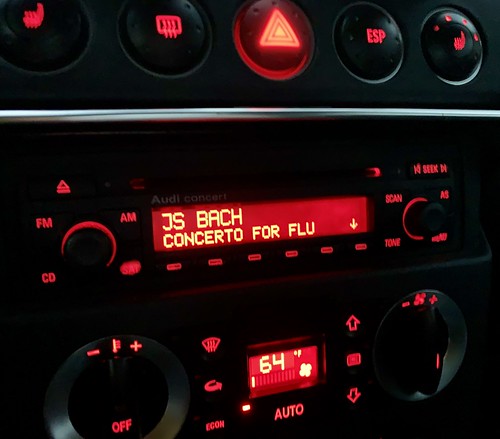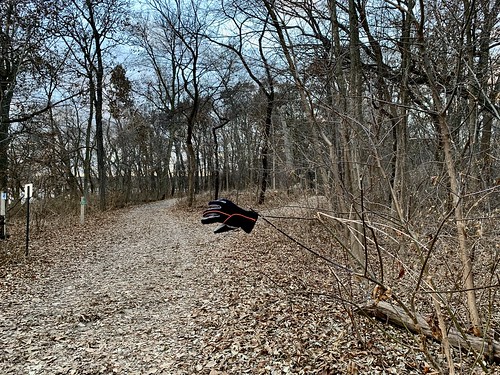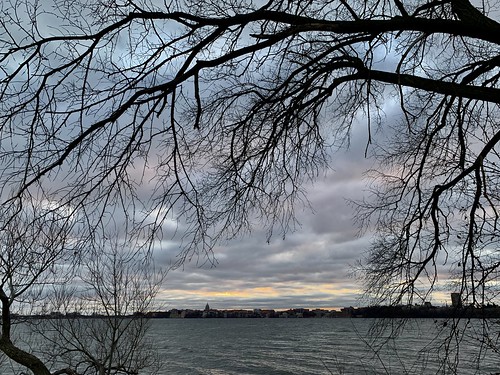1. You know how Mom just loves to sit outside at the restaurant.
2. Vying for the title Best Ginger.
5. The difference between the South and the Midwest.
6. That girl who just got engaged.
7. That fake Coke everyone's making.
Strewed over with hurts since 2004
1. You know how Mom just loves to sit outside at the restaurant.
2. Vying for the title Best Ginger.
5. The difference between the South and the Midwest.
6. That girl who just got engaged.
7. That fake Coke everyone's making.
What does it mean to feel the notes come from your heart?... That approach risks making the music seem mannered, even manipulated.... What does it mean to play expressively? Compare classical music to film. Film buffs recognize overacting in a flash, and won’t put up with it. Mr. Lang, I think, does the equivalent of overacting in music; his expressivity tips over into exaggeration, even vulgarity.Isn't nearly all pop music the equivalent of overacting? Why would classical music consumers retain a resistance to musical "overacting" when the whole rest of the culture has a taste for exaggeration and thrills. Look at our political discourse, and aren't the actors "overacting" these days? I haven't listened to Lang Lang, but for the purposes of reading Tommasini, I'm going to assume that Lang Lang is a man of our times.
He has won ardent fans for the sheer brilliance and energy of his playing. But many also respond to moments of deep expression, when he sure seems to be doing something to the music, almost always reflected in his physical mannerisms...Musicians have always engaged us visually with physical mannerisms.
Taste is, of course, a subjective thing. But there is reason to question Mr. Lang’s.... Mr. Lang plays the Romantic repertory with a great deal of freedom, especially rhythmic freedom — what’s known as rubato. Bach’s “Goldberg” Variations certainly invite flexible approaches to rhythm and pacing. But it’s a question of degree, style, taste....Tommasini dabbles in the risqué. Why isn't Lang Lang touching himself touching to Tommasini? That's the question I'm pondering at 5:56 in the morning!
It’s like he’s attempting to show us how deeply he feels the music, to prove that it’s truly coming from his heart. But as a listener I don’t care about his feelings; I care about mine. He has to make this music touch me, not himself.







“As you all know, as you did and do and will do, in culture, we build bridges, not walls,” Ma said, taking a verbal jab at President Trump’s attempts at building massive walls along the U.S.-Mexico border. After his performance, the artist, referring to the bridge that connects the two cities, said:. “I’ve lived my life at the borders. Between cultures. Between disciplines. Between musics. Between generations.”
I was talking about Ezra Pound and "ABC of Reading" in connection with Bob Dylan's winning the Nobel Prize in Literature. Some people had been saying songs are not "literature," and I was looking at the etymology of the word "literature" and ran into another quote from Ezra Pound. (It was: "Great literature is simply language charged with meaning to the utmost possible degree.")
Now drinkPulsanda! I love that word. I need another rat just so I can call her Pulsanda.
Now with loose feet
Beat the earth

Nirvana released only three proper studio albums. In an interview near the end of his life, Cobain was critical of the band's soft/loud formula and talked about wanting to branch out stylistically. He was disappointed that the band up to that point had emphasized the heavy side of that formula instead of a poppier, Beatley side.... They should have done so much more. But they changed the direction of rock music in the few years they were around. I realize that other bands have a better claim to inventing grunge. Nirvana was to grunge rock as the Beatles were to '60s rock, or as Mozart was to the Classical style, or as Bach was to Baroque. They didn't invent their style. They perfected it. Cobain was the first to admit that he mostly ripped off a lot of other bands to make Nirvana's music. I'm so glad he did.I appreciated that John was commemorating the date we learned that Kurt Cobain had killed himself, his body having lain dead, undiscovered, for 3 days. As I wrote over there, the date we heard the news matters deeply:
To me, it's the effect on people like you that is so significant. For the music that you and other young people loved to have suddenly taken on the meaning of the rejection of life -- that was terrible thing (in addition to the loss that you describe, to know that you would never hear more, never have the experience of hearing what would have evolved from what you already had made part of your mind and your life through love and attention).John was 13 at this point, and he recounts hearing the news that day on MTV, in a report that used the phrase "a self-inflicted gunshot wound to the head." He turned to me for an explanation, and I said "That means he killed himself."
After of years of investigation, the Suites are removed from the concert hall and placed in an unilluminated space, in which the cellist repeatedly plays them over a period of ten days. Through the extended timeframe and the elimination of any visual input, the listener and the playing musician are unified within the same visual and musical space.Scurry over there — would you? — if you're within scurrying distance, and let me know if you became unified with the musician by virtue of your presence in "the same visual and musical space." The "visual space" is nothingness. You can close your eyes while listening to your iPod, and imagine the cellist playing with his eyes shut. But he's not there, and it's not happening now, so unification requires more imagination. Still, this mystic state might be more achievable in the absence of the distraction of finding your way around in the dark.
Uncertainty about the original creative intentions of the Suites invites perpetual debate and allows imaginative free reign for redefining the environment in which they are played.I'm distracted reining in my imagination and reigning over my imagination about the old rein/reign pedantry. But proceed:
Bach Suites in the Dark removes the Suites from the concert hall [and] explores their malleability and the notion of practice in which they are rooted.Most people know the Suites from recordings — like this — so the notion of removing them from the place where you never needed to go invites us into the even-more-imaginary place in the past when people had no recorded music.
I grew up as a landowner's son. But I don't think I ever realized the proper interrelationship between the landowner and those who worked on a farm until I heard Dylan's record, "I Ain't Gonna Work on Maggie's Farm No More." So I come here speaking to you today about your subject with a base for my information founded on Reinhold Niebuhr and Bob Dylan.In my old post I wondered why Obama had come up with "Maggie's Farm":
Do you believe "Maggie's Farm" is one of his favorites, or do you think they just tried to find a political song that had some appropriate rhetoric? The character in the song is perceiving what's wrong with the farm (the country) and is looking for a change.A commenter over at Expecting Rain — a Dylan fan site — made the Obama connection too:
Hunter Thompson covered the 72 campaign and championed McGovern. After McGovern dropped the ball by choosing that sweaty Eagleton guy for his running mate, Thompson was disillusioned for years until he saw Jimmy Carter make an early campaign speech to Ted Kennedy and a bunch of lawyers, brazenly criticizing the American legal system.I don't know whether this means Obama and Carter are soulmates or Obama is cribbing from Carter's playlist or Obama reads Hunter S. Thompson or it's well known among Democratic campaign advisors that you can push some useful buttons by invoking "Maggie's Farm" or what. I'm just noting the linkage.
Thompson was rejuvenated. In the speech, Carter quoted a Dylan song, Maggie's Farm, which Obama is citing now. Maggie's Farm is a metaphor for transcending the political system. Dylan plugged in and played it for the acoustic folkies at Newport Folk Festival to say, "I'm not a symbol of the right or the left, I just want to rock and roll."
Just once I'd love to hear a politician who would say something like:
"You know, I don't think I've been the same since I heard the 14th unfinished fugue of J.S. Bach's "Art of the Fugue", specifically the point where Bach inserts as a countersubject the notes corresponding to the letters of his own name. It was that moment that I felt a profound connection between humanity and the universe, between numbers and metaphysics. It was that moment, listening to the ailing old Bach's assertion of his selfhood, coded into his own complex and beautiful system, that I felt truly alive and driven to spend my life devoted to the advancement of civilization and humanity."
But no. It's "Maggie's Farm". Fleetwood Mac. Wyclef Jean. You can't be elected if you actually like music anymore.
At times, he appears to argue with himself about how autobiographical the songs are. Take Mr Bellamy, which is about a man in a desperate situation - refusing to come down from the roof of his house because he's happier up there with "nobody here to spoil the view, interfere with my plans ... I like it up here without you" - newspapers have suggested this is about his state of mind. But that's too easy, he says - for starters, he began writing this album when he and Mills were happily married, and anyway, this is a character-led vignette, a Beatles-esque short story.Hmm... well, I think writers start writing things about a marriage going bad before it actually does, either because somewhere in their head they realize where things will go or because in the process of writing they are analyzing a situation and become persuaded that what looks good on the surface is not actually good. But quite apart from that, outsiders don't know whether people who now appear happily married are still or ever were happily married. Happily married is the sort of thing you pretend to be. Happy is the sort of thing you pretend to be. Now, when people look unhappy, you can believe it -- though not always. These songwriter types -- and other sorts of poets and artists -- have reason to play the forlorn, angsty role. But, surely, some of them are sincere.
"The common denominator is me. Even if I try and write, 'Desmond and Molly had a barrow in the market place', inevitably I come through the song."Yes, as a lightweight nitwit, Paul detractors would say. No, that's not me saying that. I'm imagining other people. I'd give a lot of credit to Paul for choosing "Ob-La-Di, Ob-La-Da" as his example, because he must know that it was conspicuously voted the Worst Song Ever. Personally, I think it's a cool song. For one thing, they repeatedly sing the word "bra" completely out of context just for fun (like "tit" in "Girl"). For another, the sex roles get reversed in the end. ("Desmond stays at home and does his pretty face.") But the main thing I like about it is that it is where it is in a sequence of songs on a great album that can't be thought of without all of its parts exactly how and where they are. (A feeling people won't have anymore in the future because of digitized music, and maybe you've already lost it.)
Nowadays, when he tours, he feels at ease with his audience. "It's funny, a couple of American tours ago, I was singing Blackbird and I started to chat to the audience much more. I'm very confident like that now. I remembered stuff that I'd forgotten for 30 years in explaining it. I get a therapy session with the audience, and I go, 'Hold on, I remember what that came from, it was a Bach thing that George and I used to play'."They really should identify the Bach piece! Hey, I got the answer in 2 seconds from Wikipedia:
He gets up to fetch a guitar from beside the Wurlitzer and starts playing the Bach. "Is this in tune? Yes. So that's the Bach. See, that's the bastardisation of it, and then this is how it evolves into Blackbird." He plays beautifully to demonstrate the transition.
McCartney revealed on PBS's Great Performances (Paul McCartney: Chaos and Creation at Abbey Road), aired in 2006, that the guitar accompaniment for Blackbird was inspired by Bach's Bouree, a well known classical guitar piece. As kids, he and George Harrison tried to learn Bouree as a "show off" piece. Bouree is distinguished by melody and bass notes played simultaneously on the upper and lower strings. McCartney adapted a segment of Bouree as the opening of "Blackbird," and carried the musical idea throughout the song.Back to the Guardian:
[T]here are things he doesn't want to revisit. His divorce from Mills has not only been horribly public and extended, it has also involved a series of leaked allegations about McCartney's behaviour. The model family man has been portrayed by Mills as selfish, self-obsessed and violent - she has alleged that he refused to allow her to use a bedpan to save her crawling to the lavatory on her one leg, that he discouraged her from breastfeeding their daughter, Beatrice, because he wanted her breasts to himself, that he was a drunken pot addict who had hit her in an alcoholic rage.Think about how everything you're doing now in your marriage could be restated in divorce allegations. Aren't you a monster?
You know what people want to do to you at the moment, I say. No, he replies. And I reach over and give him a big hug. McCartney smiles. "People actually do that. I get a lorra that off people. I get people I don't even know saying, 'Look, mate'," and he gives himself a sympathetic pat on the arm. "A lot of people come up to you and offer their support. A lot of people have been through similar circumstances and feel they have to communicate it to you.""A lorra that"... if it means "a lot of," why did they write "a lot of" all those other times? The English!
"[T]here is a tunnel and there is a light and I will get there, and meantime I really enjoy my work and my family. I see people worse off than me, so I can put it in perspective. There's a thing we always used to quote in the 60s when things were rough: 'I walked down a street and I cried because I had no shoes, then I saw a man with no feet.' " It was an Indian parable, and that is one of the lines I live by."See, I told you! People used to always say that in the 60s! It's just a way to say "It could be worse," but "It could be worse" lacks the gruesome imagery.
In response to your e-mailer who suggested that classical music is too distracting to read by: presumably that depends a great deal on the individual reader/listener. I, personally, am distracted by schlocky music. Most contemporary movie soundtracks would have me yanking off my earphones and begging the barista to chat me up. The thing I love about Chopin (for example) is that, while it has a deep, complex musical structure and emotional texture, it doesn't have any of the insistent qualities that demand that you focus your immediate, conscious attention on it at every moment (like a driving beat, or an incessant rhythm or lyric, or a rigid structure). Last week in the library I read two books and skimmed three more in two and a half hours while listening to Rubinstein play Chopin, and my concentration never wavered. I can rarely sustain that level of concentration for that long, and I credit the music for helping to maintain my interest and focus.In fact, I have this CD already, and I put the only the slower pieces on my "Reading Music" playlist. Here's another email with classical suggestions:
My taste might be more vanilla than you're looking for, but I often study listening to Chopin's nocturnes, Schubert's impromptus, and Vanessa-Mae's classical work. A good Chopin CD is Jean Yves Thibaudet's "The Chopin I Love"; there's quite a bit on that CD, including the E-flat major nocturne, which is my absolute favorite. For Schubert, the Wanderer Fantasy CD is very nice, especially if you can find the one played by Leon Fleisher. Actually, most of Leon Fleisher's piano work is wonderful. And Vanessa-Mae--her Original Four Seasons CD is very nice. It has the Vivaldi pieces but also her own work, the Devil's Trill Sonata, which is fantastic. Her CD Violin Player is also probably good, but I don't have that one. I do have Storm, which is interesting--she is a beautifully talented violinist who likes to fuse classical music with more modern work. She combined Bizet's Can-Can with a driving techno beat, and that worked quite well. But some of her other pieces on that CD are a little annoying--Bach just shouldn't be combined with a synthesizer or electric guitar line.Here's another:
I find that the Hilliard Ensemble's "Morimur" is great to read to. (It's on ECM New Series.) The recording was inspired by the research of Helga Thoene, a musicologist who argues that Bach alluded to chorales in the Chaconne from the second partita for solo violin. So the recording presents several chorales (in German) and the partita, followed by a reconstruction of the Chaconne with singers emphasizing the chorale melodies. (Of course, you can't go wrong with Bach for stringed instruments, either: the 'cello suites, the sonatas and partitas for solo violin, and the lute music -- there is also a very fine, recent release of Segovia Bach transcriptions on Deutsche Grammophon.)I have a lot of Bach on CD and am putting a good portion of that into the Shuffle. Someone recommended Schubert's "Wanderer Fantasy," which I had.
It may be rather SNAGy (Sensitive New Age Guy) of me to mention this, but there is, in fact, a lot of so-called New Age music that is not overly cheesy and quite relaxing. I read and write to George Winston, Michael Jones (solo piano), David Lanz and/or Paul Speer (they collaborated), among others. A lot of it is the sort of pretentious 'Toltec Magician' (I kid you not) crap, but there are also some halfway decent composers out there. I subscribed to Real's Rhapsody service, which is pretty cheap for streaming audio, and they have a New Age stream where I get some ideas. A bunch are available on iTunes.Anyway, that's enough for now!